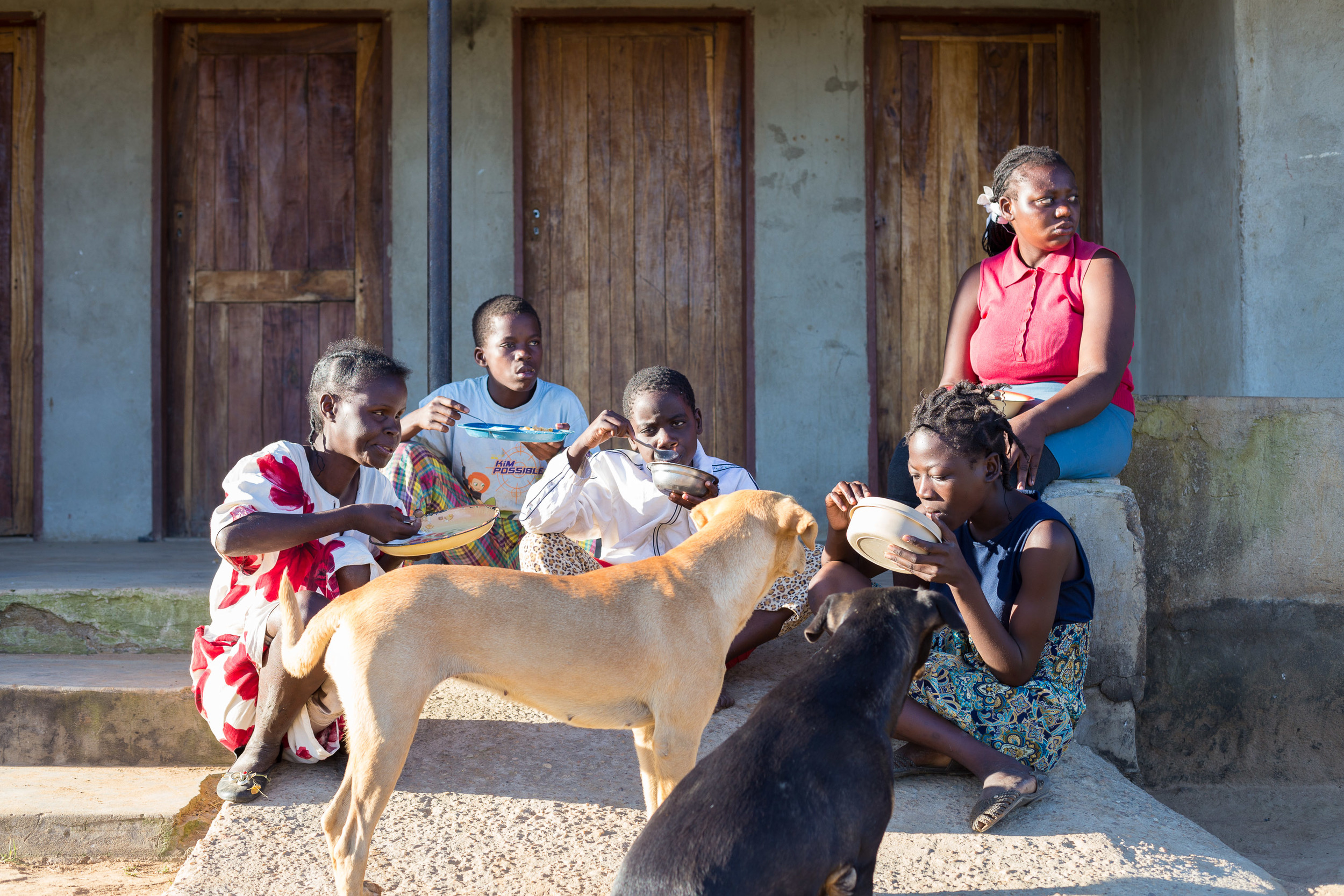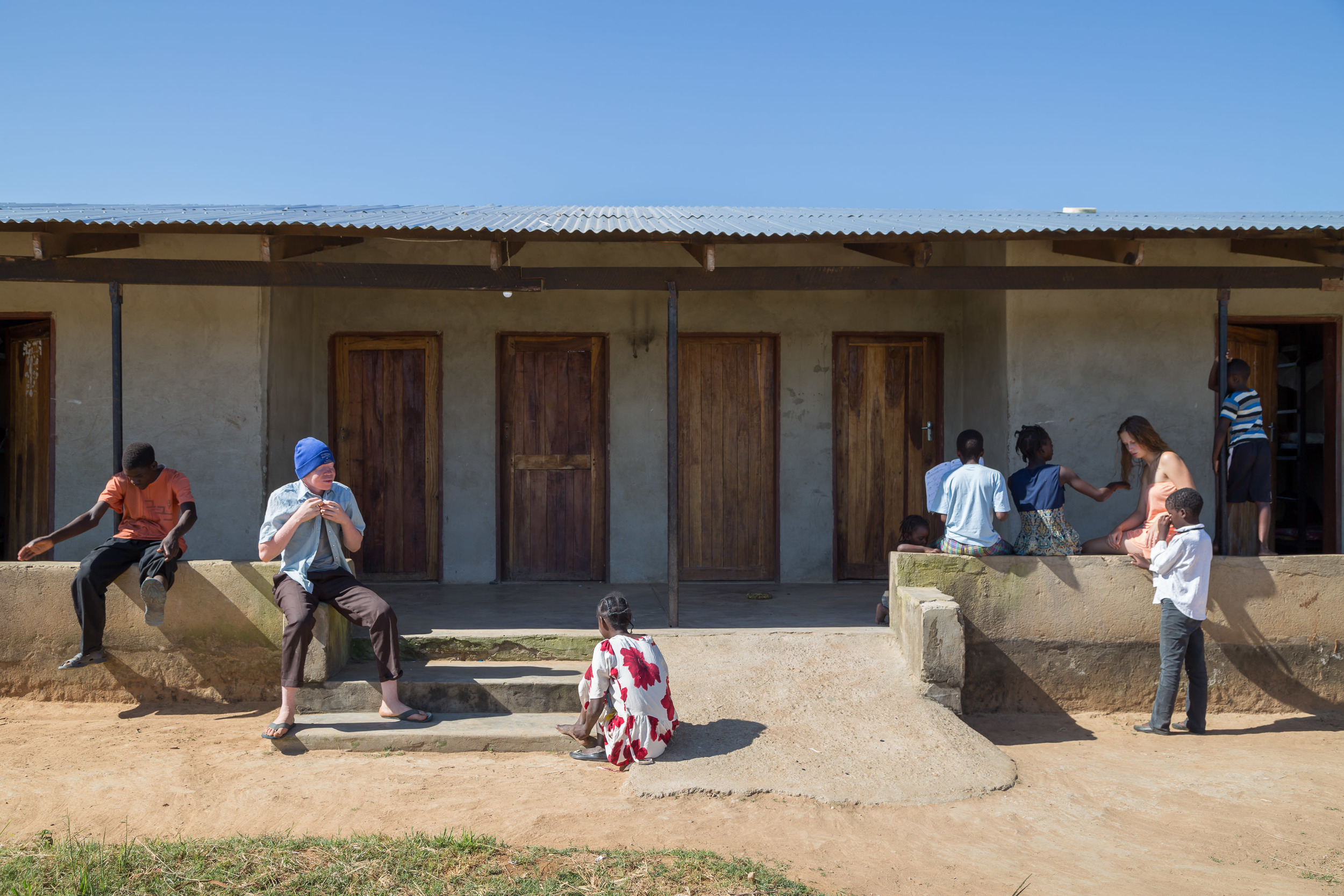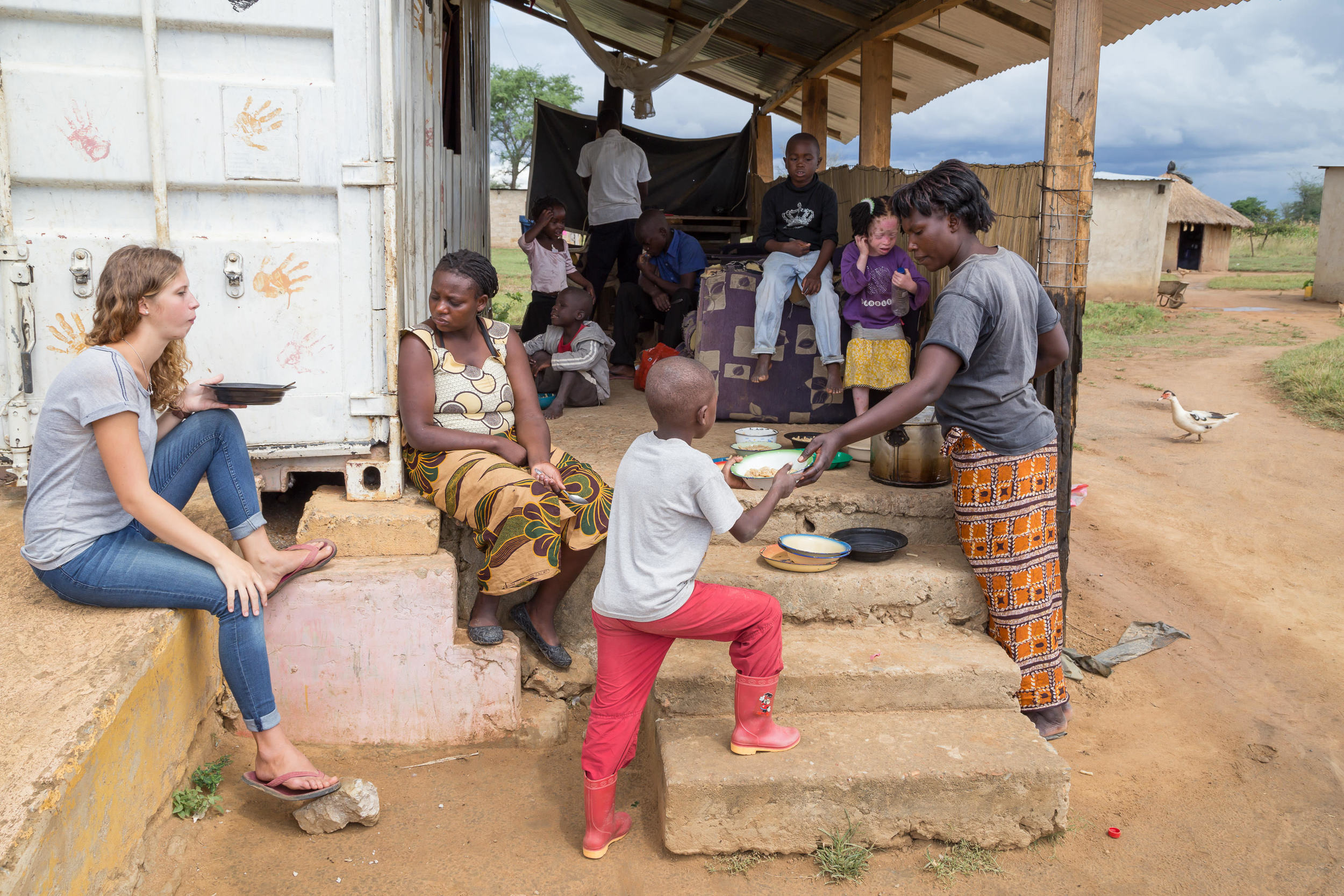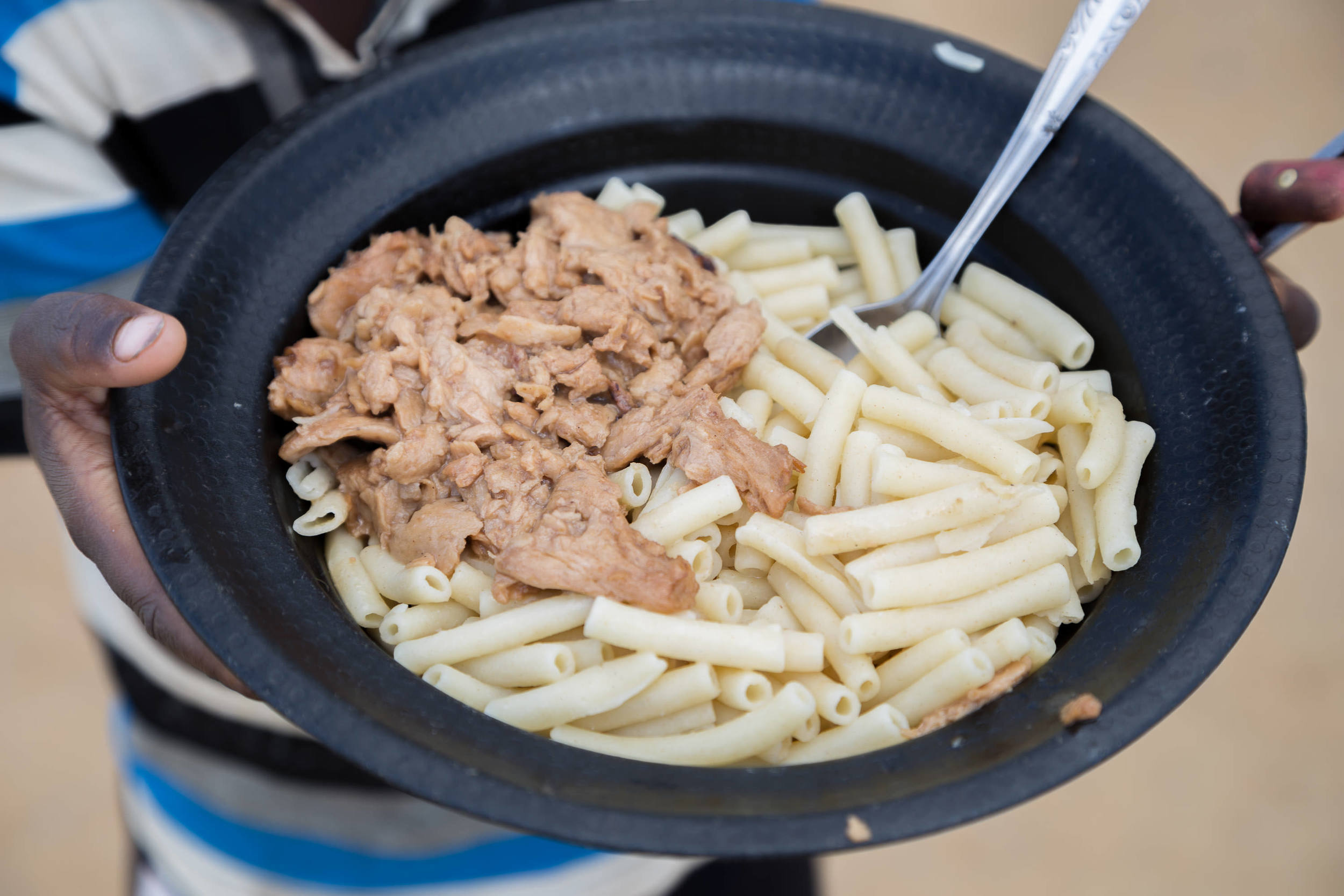Like many parts of rural Africa, education in rural Zambia lacks the necessary infrastructure and resources to sustain itself as a viable option for most families. Instead, education is frowned upon post primary school as most families want their children to work on the farms. They don't see the value of an education, but Mr. Mweetwa is one who plans to change that.
Read More3 Lessons from Living in an African Village
The rain has come today. A breath of fresh air. The kids are out prancing in the rain. And the dehydrated crops must be rejoicing.
It’s been quite a different but enlightening experience here in Munenga Village. First World meets Third World. An encounter far from the beaten path but one that was much needed.
It felt like just yesterday, the day before I disembarked for Africa, I was complaining to Amazon for the delay of my 2-day Prime shipment…oh how stupid do I feel.
And now…the halo of flies that circle me with every step I take has turned into a symbiotic relationship. The never-ending accumulation of dirt with every shower I take. The masses of unnamable flies and insects that surround my mosquito net every night. The few dozen ants that I’ve probably eaten in my meals. The arduous visits to the water pump day in and day out under the inexorable sun. Shoeless children sprinting across the sun baked fields, unwary of potential snakes, spiders, or other western-defined scary things. Life around me had become normal now.
And as I end my time here, this is what I’ve come to learn:
1. Happiness Can be Achieved on <$1 per Day
Complaining about the minimum wage or your salary? Most people in the village survive on less than $1/day. And because the men support the family, most families of some times 10 or more, live on less that $1/day. Your minimum wage of $10/hour now seems a bit extravagant now, no?
Mud huts. Tattered clothes. Shoeless children and adults. No electricity. No running water. Although the people here live below the poverty line, one would not be able to tell from their faces. Faces of joy. Faces of laughter. Faces of happiness. You may counter and say you cannot compare due to the differing levels of living costs, but this is about happiness. And these are some of the happiest people I’ve ever encountered.
But how might you ask? It’s because they value family and religion as their top priorities in life. In the village, everyone is a family member…an uncle, a sister, or a brother. They sing, they dance, and they greet. Greetings of “good morning” to “good night” will be heard from every corner of the trail from dusk to dawn.
Maybe they don’t have the means of comparison. They don’t have Facebook or any mode of social media to be envious of anybody else. They are unaware. But they have family and religion. And that’s all they need.
2. Make the Most Out of Nothing
Most people I know need the latest iPhone or technological device. Your once new and revered iPhone 5s is considered extinct and ancient with the arrival of the iPhone 6. This has produced a bunch of princes and princesses amongst us, living in a kingdom of never ending extravagant wants and wishes.
But do we really need that new iPhone 6?
Volunteering at Malaikha, School for the Blind, has really opened up my eyes to the difference between wants and needs. Children here are not only living below the poverty line but face disabilities ranging from blindness to deafness. They don’t have much and the clothes from their backs are all donations. You can even see the wear and tear most of these clothes have faced, shown from the faded colors of multiple washings and the harsh landscape. But who cares? They make the most of what we call “nothing.”
3. Be Grateful for Education
Education exposes us to the most blissful yet monstrous experiences of this world. It opens us up new doors and gives us a guideline of how we might approach them. It connects the old to the new world, as well as the first to the third world. It provides us motivation to aim higher and stories that humble us.
Those of us who are fortunate enough to obtain a quality education should be grateful given it is certainly a luxury to be educated. With lack of teachers, resources, and supplies, it is extremely difficult to obtain education in rural parts of the world. As a result, children growing up in villages may never experience a world outside of raising cattle and growing crops. If you ask them what they want to become when they grow up...teacher, nurse, farmer. That is all they know.
A Day in the Life in Munenga Village
6AM:
The rooster cocks at the sight of Sun creeping up beyond the horizon – there is no need for a digital alarm clock. Groggy murmurs of the Tonga language soon begin to stir and in a short while turns into an all out discussion over this or that. I’m awake and it feels like Groundhogs Day every single morning – I feel a palpable sense of confusion and suddenly realize that I am indeed in Africa. I then wake up.
It’s time to brush my teeth. However, the water from the pump has turned brownish-yellow over night. I choose to instead take a prudent sip of my rare, purified water to gargle and clean my toothbrush instead with toilet paper. I know I am dirty and sweaty on the surface, but I only feel the breeze of the morning air subconsciously.
7AM:


Ding ding ding! signals the arrival of breakfast at the Container, a large cargo container that sits in the middle of the school grounds. I have a 30% chance of guessing what will be for breakfast. Hoping for Rusks biscuits, I’m a bit dismayed that it is Samp & Sugar, lumps of grounded maize that looks like porridge mixed with white circular “Samp” chunks; it tastes more salty than sugary. I finish what I can and feed the rest to the dogs.
730AM:
Assembly time for the kids! One by one, they walk to the Zambian flagpole and round up in a circle to sing the Zambian national anthem. I stand, listen, and watch mainly the greenish flag flap its wings to the sound of the winds. At times, I may be asked to come to the front to say a few words. “Good job! Keep up the good work!”
The kids adjoin and go to class, separated between the 6th and 7th graders. Classes are not what I had visually imagined them to be, but I know a comparison against westernized classes is out of the question.
Mr. Makala, who is completely blind, is the head teacher. With the help Mr. Masasai, a new teacher from the Western Province, they provide direction in education, while Katharina (another volunteer from Germany) and myself will fill in whenever help is needed. However, classes are some times found to be empty with just the children (I don’t know why), so that is when we provide ad-hoc lessons.
Today, the classroom has been left empty. So I proceed to teach a class about mathematics, probably the only subject I am half-qualified to teach. If you want to buy tomatoes from the market at 2 Kwachas each, how much money do you need if you want to buy 10 tomatoes? I repeat the question several times and then a slew of hands come up at once. “Mapeenzi, don’t blurt out the answer next time!”
10AM
First break. I am extremely hungry and devour the biscuit or popcorn we get as snacks. Back to class for the children. Back to the office for me to read or teach typing lessons for the workers.
1PM


I am starving again and await the ring of the lunch bell. Pasta with Soya. My absolute favorite and the only meal I can fully finish. I want more of this. But the portions here cannot satisfy my western appetite.
The workers can be seen pacing back and forth, corralling the two class donkeys or wheel-barreling the water can down towards the water pump. Sililo is singing like always. Sooka asks me for more food. And Charles pops his head out of nowhere to inquire, “What you doing?”
Back to class after lunch does not always mean back to class. Some of the studious kids are back to the learning board while others stroll leisurely to and fro their rooms.
3PM
Worst time of the day as the sun casts its strongest and most menacing heat wave onto the land. Katharina, Joseph, and I are most likely in the office cooling off and doing a bunch of nothing – reading, talking, and just letting time and the heat pass.
Every movement provides a new sweat mark, so for the next hour, it is deafening silent other than the buzz of the flies.
4PM
Having salivating thoughts of In n’ Out, boba, and chili cheese fries are torturous reveries I experience on a daily basis at this hour. Staring at the emanating heat waves on the endless plain…I could only fill my stomach’s desires with these distant memories.
The bell rings. Popcorn is served.
5PM
5PM could not have come sooner. The sun begins to ride away into the distance bringing in the evening breeze. As I leave the office cave, the dying sun’s glare still blinds me for the next several seconds.
It’s time to shower before it really gets dark and best to not shower with the mosquitoes. I drag my body to the water pump along with my 5L jug and pump the water for my shower. With my 5L jug of water, soap, travel towel, and a change of clothes, I proceed to enter the shower stall to wash myself off.
7PM
I know it’s dinner time but have already forgotten the actual date…something that is not unusual as each day that succeeds the next feels like the same exact day. Today I try to help out with dinner by making traditional Shima, but I fail miserably and completely emasculated myself in front of these African women.
The light is starting to fade...and I drape myself with my Uniqlo dri-pants, wool socks, and North face rain jacket. The mosquitoes are out – I hate mosquitoes.
Dinner is served. Shima and Beans. We gather around the Container with the only light source coming from one light bulb, surrounded by what must be several dozen flies of different sorts.
8PM
The kids head back to the classroom to prepare for the next day, while I am exhausted from a long day of doing nothing. I then remember that I should take my anti-malarial tablets and pop a Malarone in my mouth.
I take one last glance at the cheerful stars shining high in the sky and with one last huff and a puff, retreat back to my room to turn off the lights and swiftly scramble into my mosquito net lest any bugs find their way in.
Village Drama
I’ve yet to mention a particular incident on my 2nd day at Malaihka School in Munenga Village…
It was a Friday and the boys were set on a journey towards a nearby village in which a funeral was presiding. In village life, whenever there is such an event, everybody attends. And most people attend on foot under the blistering sun. Mr. Joseph, who manages Malaikha’s workers and facilities, asked me, “Do you want to go to a funeral today? It’s not that far.”
Did I have a choice? Plus, it was my 2nd day and it would be an experience. An experience it would be…trekking over 15 miles in the unforgiving heat had left me numb to the bone and my throat craving for liquids as I’d stupidly thought the “not that far” journey would actually not be that far.
Upon returning, I ran into my cell of a home, undisturbed that chickens had entered my room, and instantly gulped down a liter of water. The water was warm, but I would have guzzled down the nearby puddle of mud if not for my still intact senses. My thirst quenched for the while being, and I proceeded to check my belongings due to my paranoid nature. However, the first thing that I checked, my wallet, was entire wiped out minus my cards. 500 Kwachas. 60 USD. It was not a gargantuan sum of money…but I subsequently suffered a panic attack searching for my Canon 6D camera, my passport, my extra money, and my Macbook Air. Whew, everything was intact, but I quadrupled checked everything and rushed to my fellow volunteer Katharina’s house to explain the situation.
After explaining the situation, it dragged out more dramatically than I had wanted. It was not a huge sum of lost money for me, but it was more than a month’s salary for the villagers. So who took the money? No one was around except the housekeepers, Madam Clara (school manager), Katharina, and a few visitors. We spent the next few countless nights speculating, but the money would forever be lost. But I had a few suspects, and the suspicions grew when I found out…
2 weeks later, Harriet, the housekeeper was caught messing with the villagers’ husbands. Even Madam Clara’s. Apparently, it was OK for the men of the village to have several wives, but it didn’t mean the wives enjoyed that. I was told it could potentially be dangerous and lethal for Harriet to stay around…that the only thing protecting her was golden aura surrounding the school.
That night, Madam Clara discussed the situation with us, and she wanted her out ASAP. Money was collected to pay for her salary, and she would leave the next day. Later that night, Harriet pulled aside me and Katharina to explain that she did not do it. We were only volunteers. We had no say. My next thought was to protect my belongings. Was SHE the culprit who took my money? Who took my money to buy herself some alluring panties from town to attract the village husbands…maybe not in that way, but I was paranoid enough to run to my room, lock my door, and pack my belongings in case shit went down the next day.
Shit did not go down the next day. Harriet had confessed and apologized dearly enough for Madam Clara to give her one more chance. And dinner was also saved for the next day, and the day after that.
However, the story keeps going. Apparently, there has been a school thief on the school grounds. Joseph, who keeps track of the food items in his house and possibly the most religious person I know, informed us that there has been someone stealing food on a consistent basis for some time now. However, given his angelic persona, he has yet to accept that she has a bad heart, although he has even seen her steal with his own eyes. That person happens to be Madam Clara, the manager of the school. And it all made sense now…the pasta she cooked for me and Katharina when we visited her house…the same exact school pasta. Nobody in the village eats pasta. Nobody.
So who stole MY money? It’s gone for sure. And I’m not willing to give up night and day to continue investigating. It’s all played out to be a good story thoughat Malaihka, but I will be leaving in 3 days. I just need to keep my belongings safe for another 3 days.





